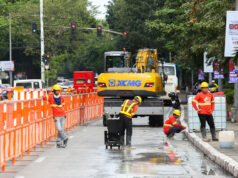Building back better in Cagayan Valley
LAST November, the Cagayan Valley region in northeastern Luzon bore the brunt of Super Typhoon Rolly and Typhoon Ulysses, which were classified as category-5 and category-4 tropical cyclones, respectively.
Residents of Isabela and Cagayan provinces were most affected by the massive flooding in the aftermath of both weather disturbances. They blamed the National Irrigation Administration (NIA) for opening the floodgates of the nearby Magat Dam at the 11th hour, submerging the two provinces in waters as high as two-story buildings.
However, NIA authorities stood firm on their position that the release of water from Magat Dam was not the main cause of flooding. They insisted that ample warnings were given to those communities in low-lying areas and the volume of water released was only 25% of the carrying capacity of the Cagayan River, the Philippines’ longest stream that serves as the catch basin for nine provinces in three regions.
Another issue that arose was illegal magnetite mining at the mouth of the Cagayan River in the municipality of Aparri. In 2019, the provincial board of Cagayan appealed to President Rodrigo Duterte to stop the dredging operations of Pacific Offshore Exploration, Inc. (POEI) because it posed a threat to the environment and the livelihood of residents.
POEI’s Chinese partner in the dredging operation, the Zhong Hai Gravel Group headed by Dong Biao Su, has lately become controversial after the Bureau of Customs (BoC) and the Philippine Coast Guard raided its Zhonhai 68 dredging vessel during a maritime security patrol off the Bataan coast. BoC officials are poised to issue a warrant of seizure and detention against the undocumented vessel, which the Chinese Embassy in Manila has claimed to be non-Chinese technically because it is registered under an African flag of convenience.
It turns out that JDVC Resources Corp. is the first and only company to be granted a declaration of mining project feasibility by the Department of Environment and Natural Resources (DENR) to extract magnetite sand and associated minerals in Cagayan. Also the country’s first large-scale offshore iron sand mining firm, JDVC is a subsidiary of publicly listed Apollo Global Capital, Inc.
Cagayan’s decades-old black sand mining problem will soon be a thing of the past with the launch of the Cagayan River Rehabilitation Project on Feb. 2. Kicking off the project in the municipality of Lal-lo were DENR Secretary Roy Cimatu and Public Works Secretary Mark Villar, who co-chair the multi-agency Build Back Better Task Force that will facilitate the rebuilding efforts in those areas ravaged by recent typhoons. Defense Secretary Delfin Lorenzana, Labor Secretary Silvestre Bello III, and Transportation Secretary Arthur Tugade also attended the ceremonial start of the river restoration project, which will hopefully put an end to the perennial flooding of the Cagayan River Basin.
GROWTH AMID THE PANDEMIC
A fast-rising firm with roots in Cagayan Valley is 100% Filipino-owned South Pacific, Inc. (SPI). Owned by the Ty family of Isabela province, SPI continues to grow phenomenally despite the pandemic-induced economic crisis.
SPI President and Chief Executive Officer Iñigo Golingay, Jr. disclosed that the liquefied petroleum gas (LPG) company’s volume for 2020 reached 512,000 metric tons, soaring 25% from the year-ago level as the company increased its sales in the Visayas and Mindanao. He said last year’s sales jumped 24% from P12.75 billion in 2019. As a result, gross earnings went up by 11% and net income of P603.27 million reflected a 19% increase year on year, according to SPI’s 2020 unaudited financial statements.
Founded in 2015, SPI has terminals in Pampanga, Batangas, and Cebu which have boosted its market share in such a short span of time. Based on the Department of Energy’s “Oil & Gas Industry Report” for the third quarter of 2020, it has overtaken Petron Corp. and is now the second largest in the LPG industry.
Another firm that recently expanded to Cagayan Valley is Philippine Stock Exchange-listed Fruitas Holdings, Inc. (FHI), which recently opened its community stores in Tuguegarao City, Cagayan and Santiago City, Isabela.
FHI’s community store network is set to grow from 30 stores as of end-2020 to its target of 100 stores by December 2021 after it secured 20 new locations and is in final negotiations for 20 more. FHI President and Chief Executive Officer Lester Yu said the rollout program, which also includes another 100 kiosks, is even ahead of schedule.
J. Albert Gamboa is CFO of the Asian Center for Legal Excellence and chairman of FINEX Publications.



